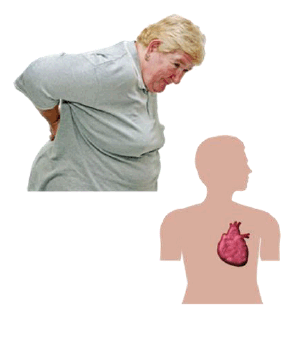Coronavirus (COVID-19) - disabled people: health, social and economic harms - research report - easy read
An easy read analysis looking at how the COVID-19 pandemic has impacted disabled people in Scotland by considering health, social and economic harms.
COVID-19 and Disabled People in Scotland: Health, Social and Economic Harms - Easy Read Version
Copyright images © Photosymbols. Prepared by Disability Equality Scotland

This report shows facts and figures on the number of disabled people who have died from coronavirus.
It shows that the rate in Scotland is about the same as in England and Wales.

Many people have died from coronavirus.

This report shows that disabled people are 2 times more likely to die from coronavirus than non-disabled people.

This was not just older people.
Disabled people of all ages were more likely to die than non-disabled people.

Disabled women aged between 9 and 64 years were 11 times more likely to die from coronavirus than non-disabled women of the same age.

Disabled men aged between 9 and 64 were 6.5 times more likely to die from coronavirus than non-disabled men of the same age.

There is less difference between disabled and non-disabled people being likely to die if they are aged 65 and over.

A report will be published in March 2021 by National Records of Scotland.
It is likely to say that the rate at which disabled people have died because of coronavirus in Scotland is about the same as the rate in England and Wales.

This is because 1 in every 5 people in Scotland, England and Wales is disabled.

The types of long-term conditions that people have are similar.
The most common health conditions are:
- back pain and issues affecting the muscles and the skeleton of the body, like arthritis
- mental health issues
- heart problems.

People who died from coronavirus in Scotland, England and Wales were more likely to:
- be over 75 years
- be a man
- live in poverty
- have had a health problem before they got coronavirus.

People aged over 65 years who died from coronavirus were likely to have health conditions like:
- problems with memory and thinking like dementia and Alzheimer's disease
- problems with their lungs and breathing
- heart disease
This was the same in Scotland, England and Wales.

People aged under 65 years who died from coronavirus in Scotland were likely to have health conditions like:
- heart disease
- problems with their lungs and breathing
- diabetes
- problems with their liver.

This was not the same in England and Wales.
Coronavirus and people with learning disabilities

This report also looks at the number of people with learning disabilities who have died from coronavirus.
People with learning disabilities were more than 3 times more likely to die from coronavirus than people without learning disabilities.
People with learning disabilities were 2 times more likely to get coronavirus than people without learning disabilities.

People with learning disabilities were 2 times more likely to:
- get very ill with coronavirus
- need to go to hospital or
- die from the disease.
What other ways has coronavirus made a difference to disabled people?

Coronavirus has made a difference to disabled people in other ways too.

Disabled people's health and social care routines have changed.

Disabled people are experiencing poor mental health because of the pandemic.

Changes made to help keep distance from people like one-way streets or queues for shops has made things difficult for disabled people.

Disabled people are also more likely than non-disabled people to feel more lonely than usual during the pandemic.

Disabled people have more debt.
This means they have had to borrow money.
They are more likely to live in poverty as they do not have jobs or have lost their jobs because of the pandemic.

Disabled people have had problems getting food because of:
- food shortages
- people sometimes had to wait for support
- difficulties in getting the first delivery spaces from shops.
Contact
There is a problem
Thanks for your feedback